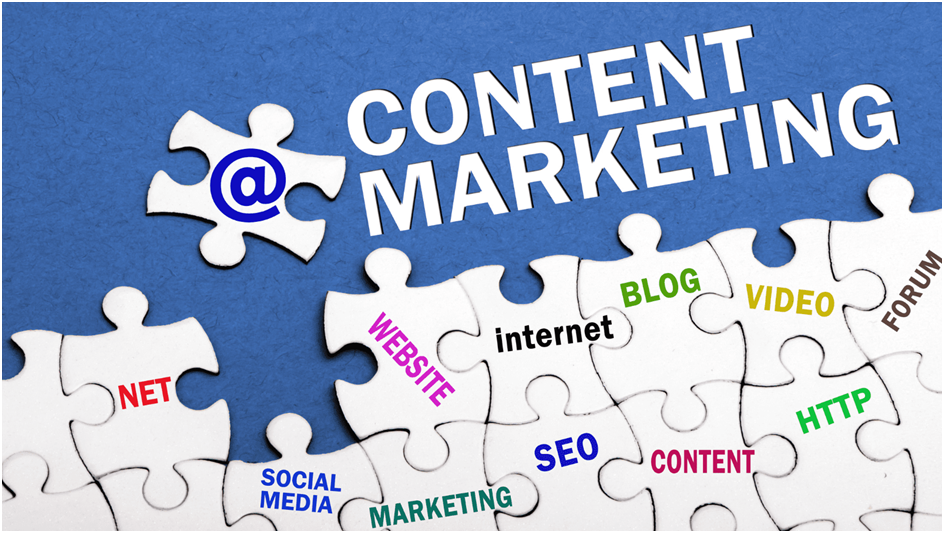Why Content Marketing is the Backbone of Digital Success

In today’s competitive digital landscape, content marketing has evolved into a cornerstone of every successful online strategy. Gone are the days of traditional advertising alone; businesses now thrive on delivering value-driven, meaningful content that resonates with their target audience. Content marketing is no longer just a tool—it’s the backbone of digital success.
This blog delves into why content marketing is essential, the immense benefits it offers, and how businesses can leverage it to achieve sustainable growth in an ever-changing digital ecosystem.
What is Content Marketing?
Content marketing is the art of creating and distributing relevant, engaging, and high-quality content to attract, engage, and convert a defined audience. Unlike direct advertising, it focuses on addressing user needs, answering their questions, and offering solutions. The goal is to build trust, nurture relationships, and ultimately guide prospects through the sales funnel.
Why Content Marketing is Indispensable
1. Builds Trust and Credibility
In a digital world flooded with choices, consumers seek brands they can trust. Content marketing enables businesses to showcase their expertise, provide value, and establish themselves as thought leaders. Educational blogs, case studies, and industry insights help build this trust.
2. Boosts Organic Traffic
Search engines reward websites that consistently publish valuable content. Through keyword-optimized articles, informative videos, and resourceful guides, content marketing drives organic traffic, reducing reliance on paid ads.
3. Drives Audience Engagement
Compelling content captivates your audience. Whether it’s an interactive infographic, a how-to video, or a blog post that answers pressing questions, engaging content keeps users invested in your brand.
4. Enhances SEO Performance
High-quality content aligns perfectly with search engine optimization (SEO) efforts. From incorporating strategic keywords to earning backlinks, content marketing directly contributes to improving your website’s search rankings.
5. Increases Conversions
Every piece of content is an opportunity to convert. A well-crafted blog or video not only informs but also subtly persuades potential customers to take the next step—whether it’s subscribing, contacting, or purchasing.
6. Builds Long-Term Relationships
Content marketing nurtures customer loyalty by consistently offering value. A loyal audience is more likely to recommend your brand, return for repeat purchases, and become advocates for your business.
Key Benefits of Content Marketing
1. Cost-Effective Strategy
Unlike traditional advertising, which often requires substantial investment, content marketing offers long-term benefits at a fraction of the cost. A single well-performing blog can generate traffic and leads for months or even years.
2. Targeted Reach
Content marketing allows you to tailor your message to specific audience segments. By addressing the unique needs of each group, you can maximize the relevance and impact of your campaigns.
3. Boosts Brand Awareness
The more your content is shared, liked, and commented on, the more your brand gains visibility. Viral campaigns and engaging posts can significantly amplify your reach.
4. Supports Every Stage of the Sales Funnel
From awareness to consideration and decision, content marketing guides prospects at every stage of their buyer’s journey, building trust and providing the necessary information to convert them into customers.

Crafting a Winning Content Marketing Strategy
1. Define Your Goals
What do you want to achieve? Whether it’s increasing website traffic, generating leads, or building brand authority, clear goals guide your strategy.
2. Understand Your Audience
Develop detailed buyer personas to understand your audience’s pain points, preferences, and behavior. The better you know your audience, the more impactful your content will be.
3. Choose the Right Content Types
Different types of content cater to different stages of the buyer’s journey:
- Blogs: Perfect for awareness and SEO.
- Videos: Great for engagement and brand storytelling.
- Infographics: Ideal for presenting complex information in a visually appealing way.
- Case Studies: Showcase real-world success stories to build trust.
4. Leverage Multiple Channels
Distribute your content across platforms where your audience is most active. This includes social media, email newsletters, and your website.
5. Prioritize Quality Over Quantity
It’s better to publish one impactful piece of content than multiple mediocre ones. High-quality content is more likely to be shared, linked to, and appreciated by your audience.
6. Track and Optimize Performance
Use analytics tools to measure the performance of your content. Metrics such as website traffic, engagement rates, and conversion rates provide valuable insights for refining your strategy.
Emerging Trends in Content Marketing
1. AI-Powered Personalization
Artificial intelligence enables businesses to create highly personalized content based on user data. Personalized content improves relevance and engagement, driving better results.
2. Rise of Video Marketing
Videos remain the most consumed form of content online. From short social media clips to detailed product explainers, video marketing is essential for connecting with modern audiences.
3. Voice Search Optimization
As voice search usage grows, optimizing content to answer voice queries will become increasingly important. Focus on conversational keywords and answering direct questions.
4. Interactive and Immersive Content
Interactive content, such as quizzes, polls, and augmented reality (AR) experiences, is growing in popularity. It encourages user participation, keeping them engaged longer.
5. Focus on Sustainability Messaging
Consumers are more conscious of environmental issues, and content that reflects sustainable practices resonates deeply with them.
Common Mistakes to Avoid in Content Marketing
1. Ignoring Data-Driven Insights
Creating content without analyzing what works and what doesn’t can lead to wasted resources. Use tools like Google Analytics to guide your decisions.
2. Overlooking Mobile Optimization
With a majority of users accessing content on mobile devices, failing to optimize for mobile can hinder engagement and rankings.
3. Being Too Sales-Focused
Content marketing is about providing value, not just promoting your products. Balance informational content with subtle CTAs.
4. Neglecting Consistency
Inconsistent posting schedules can cause your audience to lose interest. Stick to a content calendar to maintain regular updates.
The Future of Content Marketing
The future of content marketing is bright, with technology and creativity driving innovation. Businesses that embrace AI, create immersive experiences, and focus on personalization will stay ahead in the digital landscape.
Conclusion
Content marketing isn’t just a digital strategy—it’s the backbone of your brand’s success. It drives engagement, builds trust, supports SEO, and fosters long-term relationships with your audience. By crafting high-quality, relevant content and staying ahead of emerging trends, you can position your business for sustainable growth in the ever-evolving digital world.
Embrace the power of content marketing today, and watch your brand thrive in the competitive online marketplace.





